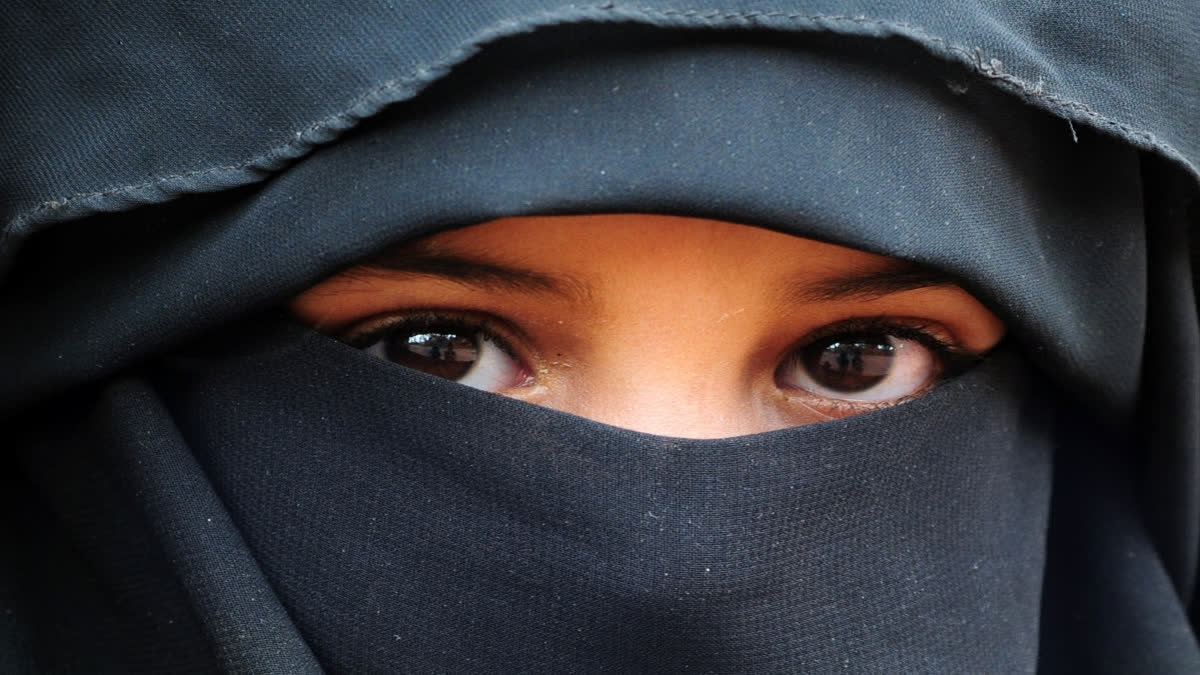Switzerland has joined the growing list of countries imposing restrictions on face-covering garments in public spaces, including burqas and niqabs. The country has implemented its 'anti-burqa' law from January 1, 2025, nearly four years after the “anti-burqa” initiative was approved by 51.2% of Swiss voters in March 2021.
The Swiss ban prohibits individuals from covering their faces entirely in public spaces, including streets, public transport, restaurants, and shops. However, exceptions exist for specific circumstances, such as health-related coverings, weather protection, or face coverings required for work or sports. Violators of the ban face fines of up to 1,000 Swiss francs ($1,144 or nearly Rs 1 lakh).
The ban does not apply to planes or diplomatic and consular premises, and faces may also be covered in places of worship and other sacred sites, the government said.
The ban, which does not explicitly target Islam, was proposed by the right-wing Swiss People's Party (SVP) under the banner "Stop Extremism." It also aimed to prohibit violent protesters from wearing masks.
In March 2021, Switzerland banned the headscarf in public, including the ‘burqa’ or niqab worn by Muslim women after a far-right proposal to ban facial coverings won a narrow victory in a binding referendum. The measure to amend the Swiss constitution passed by a 51.2-48.8 per cent margin. However, the Swiss Central Council of Muslims said it was “a dark day” for Muslims.
Indian politicians react
Indian politicians on Thursday shared their reactions to the Swiss "burqa ban" and stated that the decision was the country's own and should not necessarily be viewed through a religious lens. BJP national spokesperson Mukhtar Abbas Naqvi said that Switzerland might have its reasons for implementing the ban.
"Every country has its own rules and laws. They have their own security arrangements, and as per those, they form rules. I do not think there is a need to view this matter from a religious perspective," Naqvi said.
Similarly, NCP-SP leader Majeed Memon remarked that the law might not garner support from Muslim-majority nations but would likely have no bearing on India.
"Switzerland is a small nation, and its population is nothing compared to India. The Muslim population there is very small. Their government must have taken these steps considering the conditions in their country," Memon said.
Drawing a comparison, Memon stated, "India's Muslim population is probably higher than the total population of Switzerland, with over 200 million Muslims residing here. Whatever happens, it will not have any effect on India. It is their matter, and I do not think it is necessary for anyone to intervene."
"Many Muslim-dominated countries might criticize this idea. However, in India, where people of all faiths live together harmoniously, I do not think it will have any effect," he further added.
Countries that have banned Muslim face veils
France: France was the first European country to introduce a blanket ban on wearing burqas in public. It started in 2004, with a clampdown on students in state-run schools displaying any form of religious symbol. But in April 2011, the government went further by bringing in a total public ban on full-face veils. The ban also included the burqa if it covers the face.
China: In 2017, China banned burqas, veils, and long beards in a predominantly Muslim province as a part of its crackdown against religious extremism. People who wear headscarves, veils, burqas, or clothing with a crescent moon and star and long beards are prohibited from using public transportation.
Belgium: Following France’s footsteps in 2011, Belgium banned wearing full face-covering dress in public such as the burqa or the niqab, which covers the lower half of the face. In 2017, the European Court of Human Rights upheld Belgium’s ban on Islamic face veils following a legal challenge. People violating the law can face a fine or up to seven days in jail.
Denmark: In Denmark, the burqas were first banned in August 2018 months after validating the law in May that year. Hundreds of demonstrators marched in Copenhagen to protest against the introduction of Danish laws banning veils that fully cover the wearer’s face.
Sri Lanka: Sri Lanka banned all forms of face veils in public places “due to national security concerns” as part of government legislation that took effect on 29 April 2021. The wearing of burqas was temporarily banned in 2019 after Easter Sunday suicide bomb attacks killed more than 260 people. (With Agency Inputs)



